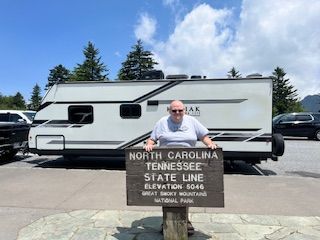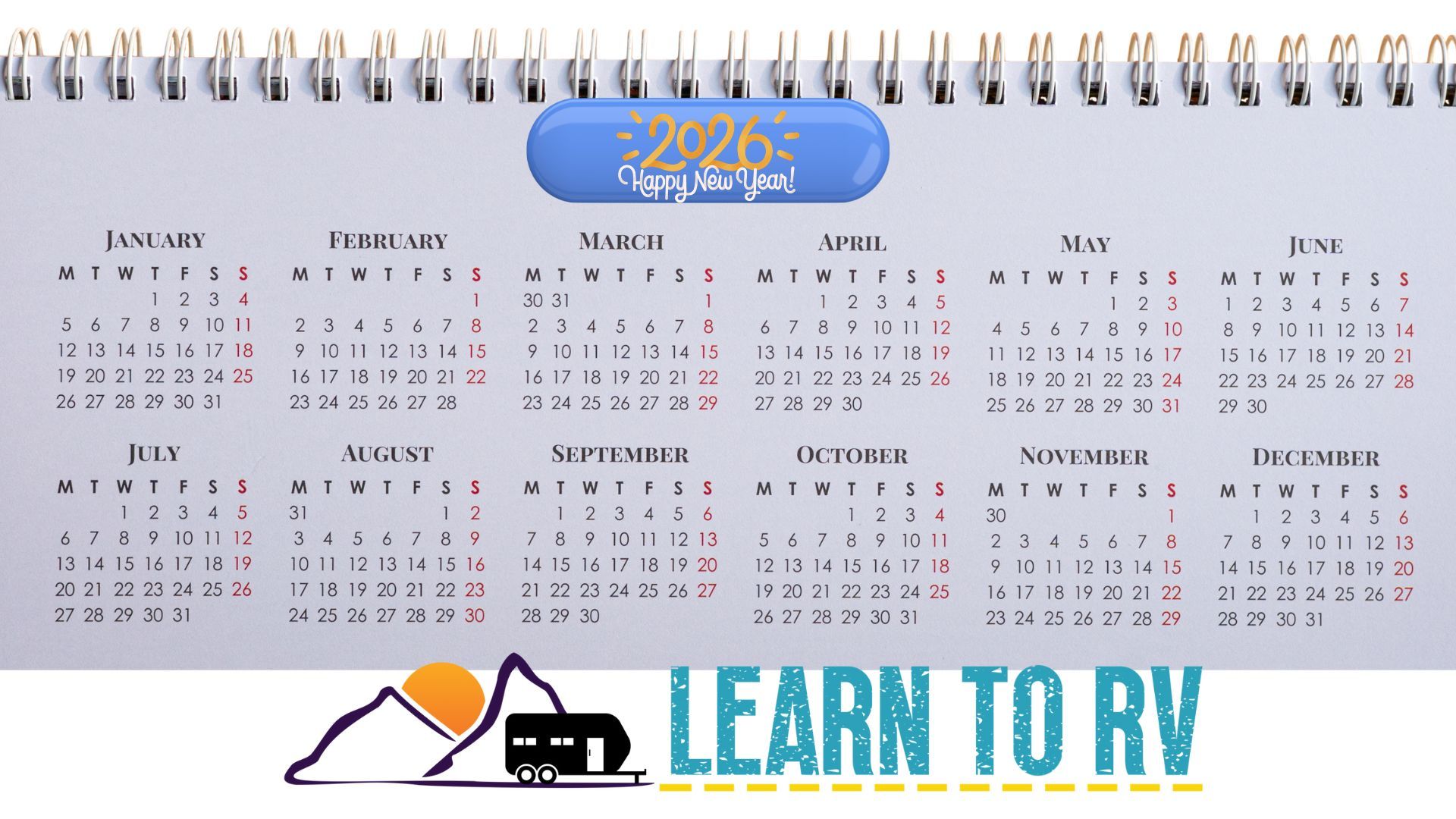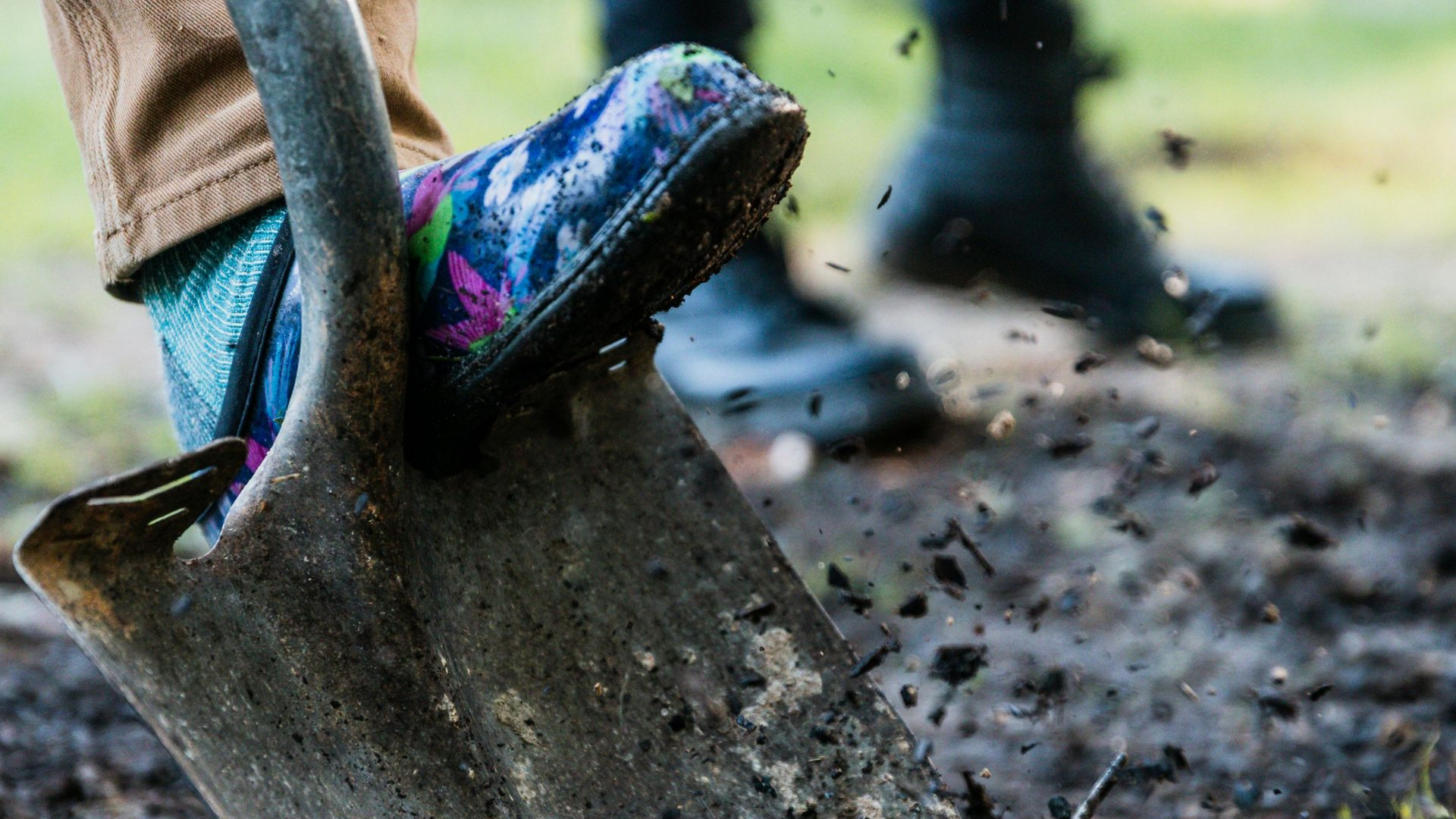How to Find a Qualified RV Tech on the Road
Jennifer Schillaci • October 23, 2025
How to Find Trustworthy RV Techs on the Road
My friend, Christine’s wheel bearing caught fire on the road recently. This can be a terrifying moment that too many RVers know all too well. We’ve been there too, and it’s not just scary—it’s overwhelming. Thankfully, she pulled over safely, got immediate help, and found a local repair shop that not only fixed the issue quickly but also gave her a place to stay during the repairs. In many ways, she got lucky. Most RVers in similar situations face long waits, limited options, and little support. That’s why knowing how to find a reliable RV tech before disaster strikes can make all the difference.
RV repairs don’t care where you are. Whether you’re boondocking in the boonies or parked at a resort with full hookups and a view.... and when something goes wrong—a slide that won’t retract, a fridge that won’t cool, a clogged black tank, a leaking roof, or a water heater that’s suddenly gone rogue—you need help. Fast.
But here’s the catch: not all RV techs are created equal.
Handyman vs. Skilled RV Tech: Is there a Difference?
Handyman Services
May offer general repair help
Often lack RV-specific certifications
Might not carry insurance or warranties
Can be hit-or-miss for complex issues
Skilled RV Technicians
Trained specifically in RV systems
Certified by RVTI or RVTAA
Typically insured and warranty-aware
Equipped for diagnostics & specialty systems
Handymen (and handywomen!) can be lifesavers for quick fixes — think loose cabinet hinges, leaky faucets, or replacing a vent cover. They often cost less, and many are incredibly resourceful. But when it comes to diagnosing a slide motor issue, rewiring a converter, or troubleshooting a fridge that’s acting up in 90-degree heat, you want someone who’s not just guessing.... you want someone who’s trained.
Still, some handypeople have years of RV experience and can absolutely do the job right the first time. So how do you know if they’re the right fit for your repair?
7 Questions to Help You Vet Their Skill Set
- “Have you worked on this exact issue before?”
Experience with your specific problem — like a Norcold fridge or Lippert slide — matters more than general know-how. - “Do you have any RV-specific training or certifications?”
Look for RVTI, RVTAA, or manufacturer training (e.g., Aqua-Hot, Dometic, Victron.) - “Can you walk me through what you’d check first?”
A confident tech will outline their diagnostic approach without hesitation. - “Do you carry insurance?”
It’s not just about liability, it shows professionalism and accountability. - “Do you offer any kind of warranty or guarantee?”
Even a 30-day verbal guarantee shows they stand behind their work. - “Can I see reviews or references from other RVers?”
Word-of-mouth is gold in the RV world. Facebook groups, campground hosts, and rally chats are great places to ask. - “What’s your hourly rate — and do you charge for travel?”
Transparency upfront avoids surprises later.
Trust Your Gut
If someone seems evasive, vague, or dismissive of your questions, that’s a red flag. But if they’re clear, confident, and respectful of your rig and your concerns, even without formal certification, they might be just the right fit.
The “taillight guarantee” is one of those industry phrases that sounds a bit cheeky, but it’s actually a red flag. In RV repair (and other contractor work), it often means that once the tech leaves, you're on your own. If something goes wrong with the repair—whether it’s a leak, a faulty install, or a missed diagnosis—there’s no follow-up, no accountability, and no warranty to protect you. In fact, there's a good chance you'll be ghosted.
Ask Before You Book
“Do you offer a warranty on your work, and what happens if something goes wrong after you leave?”
If they hesitate or deflect, that’s your cue to keep looking.

Are All Certified RV Techs Created Equal?
The short answer? No.
Even if someone holds a certification, it doesn’t automatically mean they’re the right fit for your repair. Think of it like hiring for a job—you’re the interviewer, and your rig is the position to fill. You wouldn’t hire a plumber to install a solar array, and you wouldn’t call a solar specialist to unclog your black tank. It’s all about matching skill to need.
How to Weed Out the Right Tech
So how do you find someone who won’t just “give it a go,” but actually knows what they’re doing?
- Ask for Certification
- Look for RVTI Level 2 or RVTAA Certified/Master Certified techs. These credentials show they’ve completed rigorous, RV-specific training.
- Check Reviews & Ask for References
- Use trusted directories like FindAnRVTech.com or RVTAA’s locator to read real feedback from fellow RVers.
- Ask About Specialties
- Need help with Aqua-Hot, solar, rv roofs, bearings or slide-outs?
- Ask if they’ve worked on that exact system before. Many techs have niche expertise — and that’s a good thing.
- Confirm Insurance
- A professional tech should carry liability insurance. It protects both of you and signals that they take their work seriously.
- Get a Written Estimate
- Even for mobile service, transparency matters. A clear quote helps avoid surprises and sets expectations.
Treat the Call Like an Interview
When you call a tech, don’t just ask “Can you fix this?” Ask:
- “What’s your experience with this system?”
- “Do you carry parts for this brand?”
- “How do you typically diagnose this issue?”
Their answers will often tell you everything you need to know.

Why RV Roof Repair Requires Specialized Skill
Not every technician is qualified to do RV roof repair—and choosing the wrong one can lead to costly leaks, structural damage, or warranty issues.
RV roofs aren’t just flat surfaces, they’re layered systems involving:
- Membranes (EPDM, TPO, PVC, fiberglass, or aluminum)
- Sealants around vents, skylights, and AC units
- Structural decking that may need reinforcement or replacement
- Protective coatings to prevent UV damage and leaks
If a technician tells you that Eternabond tape is more than a band-aid, or casually layers fresh caulk over old, cracked sealant without addressing the soft spot underneath, it’s probably time to keep looking. Quick fixes might hold for a season, but they won’t protect your rig long-term. A qualified RV tech should diagnose the root cause, not just mask the symptoms. Your RV deserves more than surface-level solutions—and so do you. Ask questions, trust your gut, and don’t settle for shortcuts when it comes to your home on wheels.
RV Roof Patches: Why They’re Not a Long-Term Fix
RV roof patches might seem like a quick and budget friendly solution, but they’re rarely a permanent one, and will end up costing you way more in the long run. Whether it’s a dab of sealant, a square of Eternabond, or a DIY coating, these fixes often:
- Mask deeper issues like soft spots, water intrusion, or membrane separation
- Fail under movement and weather — heat, cold, flexing, and vibration all wear them down
While some mobile techs offer patch jobs or sealant touch-ups, nationwide specialists like RV Roofing Solutions focus exclusively on RV roof systems & complete RV roof repairs.
What Sets RV Roofing Solutions Apart
- Preventive Maintenance Systems:
An RV Roofing Solutions System protects your roof from the top down from leaks and UV protection to extend your rv roofs life. An RV Roofing Solutions Standard system is a maintenance free seamless system that no longer needs to be caulked year after year.
- Full Roof Replacements (when needed):
Whether it’s EPDM, TPO, fiberglass, or metal, they handle it all from standard systems to complete tear-offs and installs.
- Warranty-Backed Work:
RV Roofing Solutions offers a 10-year transferable Labor & Material warranty on every roof they professionally install & they use premium materials that meet or exceed OEM standards.
- Mobile Service Across the U.S.:
Their technicians are not only certified techs & RV Roof Specialists that travel to campgrounds, rallies, and even your driveway — no need to move your rig.
- RV Roofing Solutions Techs are trained by their own team and each technician stands behind their work for 1 full year after the installation has been completed.
Why This Matters
Not every certified RV tech is trained in roof systems. Some specialize in electrical, plumbing, or appliances—and that’s great when your fridge fails or your slide jams.
For RV roof work, you want someone who is well versed in RV roofing.
- Knows how to diagnose hidden leaks and soft spots & repair those issues
- Uses the right products for your roof type
- Understands structural integrity and weight distribution
- Offers long-term solutions, not just quick fixes
Ask These Questions Before Booking RV Roof Work
- “Do you specialize in RV roof systems?”
- “What types of roofs have you worked on?”
- “Do you offer a warranty?”
- “Can I see photos or reviews from past roof jobs?”
- “How much does your product weigh?”
- “Do you work with insurance?”
- “Is your product low VOC? & How long does it off-gas while it cures?”
- “How long have you been in business?”
- “Do you have to replace a gasket on my Air conditioner if you loosen it?”
Here’s the truth: once you lift an RV roof air conditioner, the gasket seal is compromised. period. That gasket was designed to compress and seal once. If you break that seal, it’s no longer reliable, and reusing it can lead to leaks, water damage, and mold.
- Gaskets are compression seals, not reusable parts.
- Reusing a gasket can cause water intrusion, especially during rain or travel.
- A proper tech will always replace the gasket when lifting the unit — no exceptions.
So if a tech tells you, “We can reuse the gasket,” or casually brushes off the need to replace it, that’s a red flag. They shouldn’t be on your roof—or anywhere near your A/C.
Don't forget to join the FREE Facebook group
RV Roof Advice.
Finding the Right Mobile RV Tech — No Matter Where You Roam
When you’re parked near home or staying put for a while, it’s easy to spot mobile techs advertised in campground maps, local Facebook groups, or even flyers in the laundry room. But when you’re traveling — especially in unfamiliar states — repairs come with a whole new set of challenges.
- Prices can vary wildly (a $150 job in one state might be $500 in another)
- Availability is unpredictable
- Not all techs are certified or insured
- Some may not specialize in the issue you’re facing
So how do you find someone who’ll do the job right the first time?
Trusted Tools for Finding Mobile RV Techs
✅ RV Help Pro Membership
- Connects you with RVTAA-certified mobile techs across 48 states
- Lets you message techs directly through the platform
- Offers remote tech support and inspection services
- Partners with NRVIA and RVTAA for quality assurance
- RV Help isn’t just for emergencies - it’s a planning tool too
- Build a service map along your travel route
- Save tech contacts near rally sites or seasonal stops
- Track maintenance history and upcoming service needs
- Filter by Registered, Certified, or Master Certified techs
- Search by specialty: Aqua-Hot, Lippert, Dometic, solar, and more
- Ideal for emergency roadside repairs or campground service
✅ In a world full of options, FindAnRVTech.com stands out by doing the vetting for you. This isn’t just a directory—it’s a curated network of certified, insured, and trusted RV technicians who know their stuff. Whether you're stuck in the desert or parked at a luxury resort, FindAnRVTech.com helps you connect with pros who are trained, reviewed, and ready to roll.
Campground Maps: More Than Just Directions
Campground maps aren’t just for finding your site—they’re a goldmine for discovering local businesses that care enough to invest in their reputation. From mobile RV techs to repair shops and service providers, the ones advertising on campground maps are often nearby and ready to help. But proximity doesn’t guarantee quality. Even if they’re listed, you still need to ask the right questions—about certifications, insurance, warranties, and experience with your specific issue.
Local vs. On-the-Road Repairs
Campground techs may be great for quick fixes, but for major repairs — especially roof work, electrical diagnostics, or appliance replacements — consider calling a specialist like RV Roofing Solutions or a certified mobile tech with proven experience & expertise.
Why Facebook Groups Are Gold for RV Tech Recommendations
- Local RVers know the real scoop - who shows up on time, who overcharges or undercharges, and who leaves you with the dreaded “taillight guarantee.”
- You’ll get both praise and warnings - not just polished reviews, but real stories from people who’ve been there.
- You can ask specific questions like “Has anyone used {a mobile tech} near {town} to unclog my black tank?” and get answers within hours.
Are you a member of our Facebook group of Learn to RV, The Friendly Informative Group?
Are You a DIY’er and Up to the Challenge?
Many RVers find themselves in a familiar spot: something breaks, you’re miles from a service center, and the repair bill might rival your monthly campground fees. Whether it’s budget constraints or your inner MacGyver itching to solve the problem, sometimes you just have to fix it yourself.
But here’s the good news: you don’t have to do it alone.
📞 Phone-a-Friend for RV Repairs? Yes, Please.
RV Diagnostics is a game-changing service for DIY-minded RVers. Founded by U.S. Army veteran and ASE-certified mechanic Jeffery V. Malatesta, this platform offers audio/video diagnostic support tailored specifically for RV owners.
For a low annual membership fee, you get:
• Real-time help from certified experts
• Step-by-step guidance for troubleshooting and repairs
• Support that’s available wherever you’re parked — no shop required
Whether you’re tackling a water heater issue, chasing down a battery drain, or wondering why your slide won’t budge, RV Diagnostics gives you the confidence to say, “I’ve got this — with backup.”
RV Body Work on the Road: What You Need to Know
When your RV suffers exterior damage—whether you have been assaulted by a tree limb, a fender bender, or a surprise hailstorm—finding a trusted repair shop can feel overwhelming. And while some mobile techs offer patch jobs, true body work often requires specialized facilities and a willingness to leave your rig behind for a few days.
Trusted Names in RV Body Repair
If you're willing to drop off your RV, these companies are known for quality work and customer care.
When it comes to RV bodywork, trust isn’t optional—it’s essential. If you're willing to drop off your rig, these companies stand out for their craftsmanship, integrity, and genuine care for customers. We don’t just recommend them—we know them personally and have seen their work firsthand. Whether you're dealing with collision damage, paint restoration, or structural fixes, these teams deliver quality you can count on.
- CDI (Collision Damage Industries): Specializes in RV collision repair, fiberglass restoration, and paint matching. Known for working with insurance and offering detailed estimates.
CDI recently brought patriotic flair to the open road by custom painting Kevin and Patrice McCabe’s Winnebago, yes, the beloved rig from RV There Yet? in celebration of America’s upcoming 250th birthday in 2026. This one-of-a-kind design isn’t just eye-catching; it’s a moving tribute to the spirit of adventure, freedom, and the American road trip legacy. With stars, stripes, and storytelling in every detail, the McCabes are now rolling across the country in a rig that’s as bold and unforgettable as the milestone it honors. Keep an eye out—you won’t want to miss this piece of history in motion.
- Utility Bodywerks: Offers full-service RV body repair, custom fabrication, and paint services. They’re especially popular among Class A and Super C owners.
If you’ve ever seen Cory and James roll into a show, you know Utility Bodywerks doesn’t do anything halfway. From custom haulers to jaw-dropping upgrades, their rigs are built to impress—and perform. Whether you're looking to upgrade all the things or you’ve got a heavy hauler that needs serious outfitting, this is the stop that turns utility into artistry.
What makes them truly special? They don’t just showcase incredible trucks—they build them, drive them, and yes, even sell them. That show-stopping rig you saw at the last rally? It might just be available. Utility Bodywerks blends craftsmanship, innovation, and real-world road testing to deliver gear that’s as functional as it is unforgettable.
- S&S Automotive Restoration & Collision (Wakarusa, IN): Located near the RV capital of the world, S&S provides fiberglass, gel coat, roof, and sidewall replacements. They offer customer accommodations like 50-amp hookups, water, and a lounge.
Ask These Questions Before You Drop Off Your Rig
- “Do you specialize in RV body work or just general collision?”
- “Can I see photos of similar repairs you’ve done?”
- “Do you work with my insurance provider?”
- “What’s your estimated timeline — and do you offer hookups if I stay?”
Whether you're parked at a resort or boondocking off-grid, RV repairs are part of the journey-and finding the right technician can make all the difference. This means vetting certifications to asking the right questions, knowing who to trust (and when to DIY) empowers you to protect your rig, your budget, and your peace of mind.
With tools like
RV Help,
RV Diagnostics, and trusted directories like
RVTAA and
FindAnRVTech.com, you’re never truly alone on the road. The key is preparation, curiosity, and a little confidence — because when you know what to ask and where to look, even breakdowns become part of the adventure.














